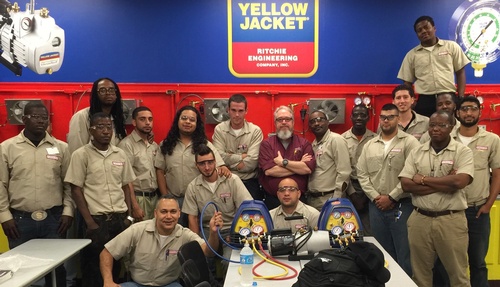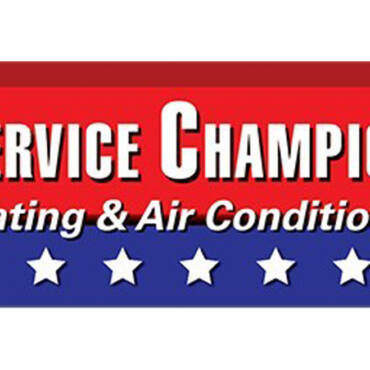How many young people have been told: “To get ahead in life you must have a degree”? Next time you’re in line at a coffee shop, look around and consider how many baristas pulling espresso shots might already have that coveted diploma. This isn’t meant to disparage colleges or baristaswe absolutely need educated doctors, engineers, lawyers, and other professionals. We certainly want our pilots well-versed in flight dynamics. But many young people are accumulating massive student debt pursuing degrees in fields with limited job prospects.
I’ll admit I may be biased. After high school, I chose to become a plumber. In the late 1990s, I entered the HVACR industry and have worked as a tradesman my entire adult life. Based on my experience, I’d like to offer some perspective to help you make informed decisions about your career path.
A skilled trade refers to an occupation that requires specialized experience and ability within a certain field. These valuable skills are typically acquired through:
- On-the-job training and apprenticeships
- Post-secondary trade schools
- Vocational/technical high school programs
- Specialized degree programs
The skilled trades encompass numerous essential fields including:
– Plumbing
– Electrical work
– Heating, Ventilation, Air Conditioning, and Refrigeration (HVACR)
– Carpentry
– Masonry
– Cabinetry
– Welding
These trades are fundamental to building and maintaining our homes, offices, and infrastructure. When you choose a skilled trade, you’re entering a field that provides tangible, necessary services that communities depend on daily.
Service and repair technicians in the skilled trades often enjoy year-round employment. These positions tend to be remarkably ‘recession-proof’even when the economy struggles, people still need comfort, running water, and electricity in their homes and businesses.
During the housing bubble recession, I was working in northwest Ohio as an HVACR technician earning $40,000 annuallya solid income during a difficult economic period. According to Indeed.com, today’s average senior HVAC technician earns $23.70 per hour nationally, significantly higher than the national average of $17.80 per hour across all occupations.
For entry-level HVAC technicians, starting salaries typically range from $15-18 per hour, with substantial growth potential as you gain experience. Senior technicians with specialized certifications in commercial systems or emerging technologies like heat pumps can command $30-40+ per hour in many markets.
The HVAC industry offers exceptional stability with projected growth that outpaces many other fields. According to the US Bureau of Labor and Statistics, the decade from 2016 to 2026 will bring approximately 15% growth within the HVAC industrysignificantly above average compared to other occupations.
This growth is driven by several factors:
– Increasing building construction
– Growing emphasis on energy efficiency
– Expansion of smart home technology
– Rising demand for improved indoor air quality
– Regular replacement cycles for HVAC equipment
What does this mean for skilled HVAC technicians? If you develop expertise in this field, you can effectively write your own ticket. Senior technicians with proven skills and reliability can often command their desired salary and work virtually anywhere in North America. The demand for qualified technicians far exceeds the current supply, creating a job seeker’s market that shows no signs of slowing.
The demand for skilled HVAC techs is booming. Ready to take your established business to the next level? Property.com offers an exclusive, invitation-only network for top contractors. Gain a competitive edge with enhanced SEO, AI-powered reputation management, and powerful homeowner insights via our ‘Know Before You Go’ tool. Secure your limited spot in your region and lock in early adopter rates. Become a Property.com Certified Pro today.
The financial equation of education has shifted dramatically in recent decades. Consider these sobering statistics:
- The average bachelor’s degree now costs approximately $127,000
- Unpaid student loans burden taxpayers with $1.4 trillion ($1,400,000,000,000) in the US
- Seven million Americans are currently in default on their student loans
- Many graduates struggle to find employment in their field of study
By contrast, trade schools typically cost around $30,000 and require two years or less to complete. This significant difference means:
- Less time out of the workforce (earning instead of spending)
- Substantially lower educational debt
- Faster path to financial independence
- More immediate return on investment
Many high school graduates pursue degrees with little counseling on direction or cost implications. They often select majors without clear employment pathways while accumulating substantial debt. In contrast, the skilled tradesparticularly HVACoffer defined career trajectories with established demand and compensation structures.
As I tell my students: “If you can’t find a job in the trades, it’s because of the person in the mirror, not the trades job market.”
One significant challengeand opportunityin the skilled trades is the aging workforce crisis. The push toward academic degrees has created a severe shortage of younger workers entering trades professions.
The statistics tell a compelling story:
– As of 2013, 55% of skilled tradespeople were 45 years or older
– By 2030, an estimated 79 million skilled workers will retire with only 41 million new workers entering these fields
– The US Bureau of Labor Statistics reports that for every three tradespeople retiring, only one replacement enters the workforce
– The average age of skilled trade workers is 55
This demographic reality creates extraordinary opportunities for those entering the trades now. The skilled trades environment is physically demandingnot for the frail or faint of heartwhich contributes to the sharp decline in technicians working past age 65. This natural attrition combined with insufficient new entrants means qualified young tradespeople will be in exceptionally high demand for decades to come.
What does working in HVAC actually involve? The field offers remarkable diversity in your daily activities and can include:
- Diagnosing and repairing heating and cooling systems
- Installing new equipment in residential and commercial settings
- Performing preventative maintenance and system tune-ups
- Working with electrical circuits, refrigerant, and mechanical components
- Reading blueprints and specifications
- Using specialized diagnostic tools and equipment
- Explaining technical information to customers
- Problem-solving complex system issues
The work can be physically demanding, involving crawling in tight spaces, lifting heavy equipment, and occasionally working in extreme temperatures. However, it also offers intellectual challenges, requiring continuous learning as technology evolves and systems become more sophisticated.
Many technicians appreciate the blend of technical knowledge, hands-on skills, and customer interaction. No two days are exactly alike, and you’ll constantly face new challenges that keep the work engaging and rewarding.
Taking the Next Step in Your Career Journey
I’m not anti-collegeI believe in being well-educated without future financial destruction. Training within the skilled trades offers consistent opportunities to earn and grow throughout your career.
If you’re considering a career in HVAC or other skilled trades, here are practical next steps:
- Research local trade schools and community college HVAC programs
- Look into apprenticeship opportunities through unions like UA (United Association)
- Connect with local HVAC companies about ride-along opportunities
- Speak with working technicians about their experiences
- Explore certification requirements in your state
By all means, pursue the career of your dreamsbut talk to professionals in the field before making choices at 18 that your 28-year-old self might regret. The skilled trades offer rewarding, secure career paths that will remain in high demand for decades to come.
Whether you require installation, repair, or maintenance, our technicians will assist you with top-quality service at any time of the day or night. Take comfort in knowing your indoor air quality is the best it can be with MOE heating & cooling services Ontario's solution for heating, air conditioning, and ventilation that’s cooler than the rest.
Contact us to schedule a visit. Our qualified team of technicians, are always ready to help you and guide you for heating and cooling issues. Weather you want to replace an old furnace or install a brand new air conditioner, we are here to help you. Our main office is at Kitchener but we can service most of Ontario's cities
Source link


